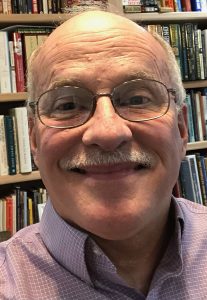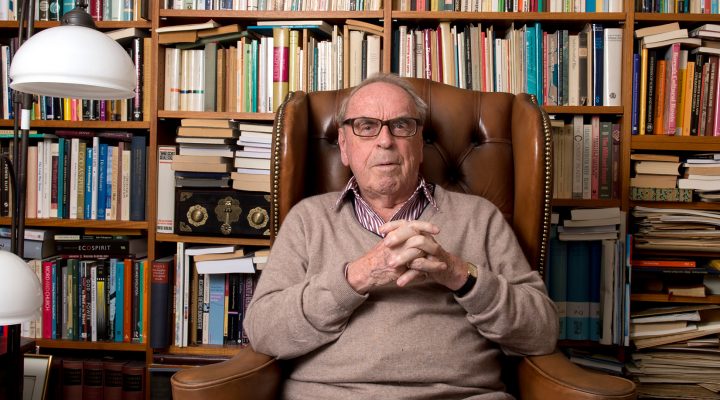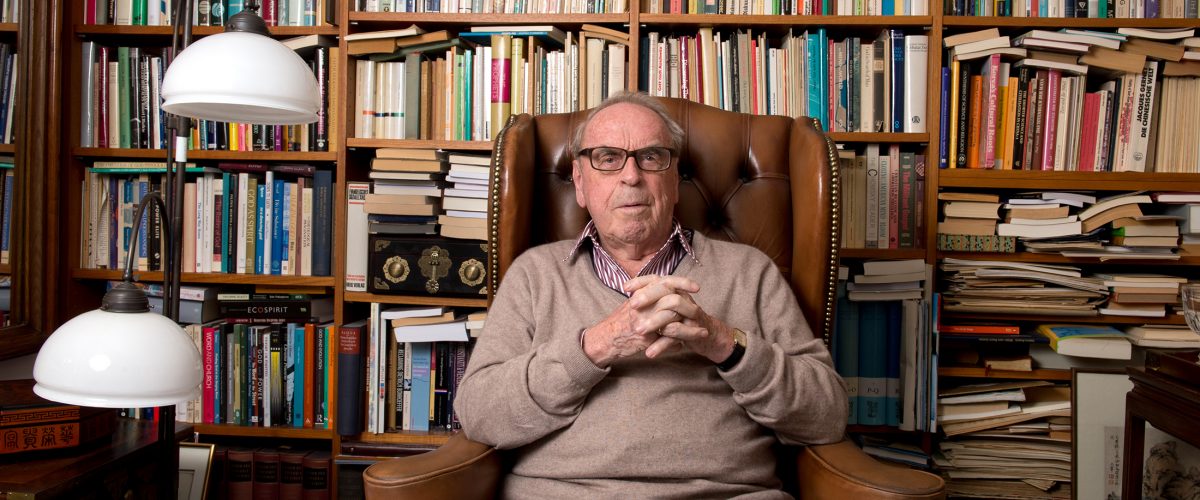A couple of weeks ago, Mark Wingfield wrote to challenge his readers in his article, “The Strict Father Model is Killing Us.” After describing the differences between the Strict Father and the Nurturant Parent worldview models, which attempts to explain the impasse often hampering conversations between conservatives and liberals, he left us with this question: “So, couldn’t someone please come up with another model that would give refuge to those who need to escape the Strict Father worldview?”

Tony Tench
I was thinking about his question when I learned of the death of German theologian Jürgen Moltmann at the age of 98. I have been encouraged by Moltmann’s work ever since those first reading assignments in Frank Tupper’s theology classes and Moltmann’s address to the student body in Alumni Chapel at Southern Seminary years ago. Could his life’s testimony help take us toward an answer to this question?
In his autobiography, A Broad Place, Moltmann writes of “strict” childhood experiences:
- His mother felt inferior to his “all-knowing, all-determining father.”
- “My father was an authority in German, Latin and history. With his fabulous memory, he was a walking encyclopedia and let the less-proficient person feel it.”
- He says he suffered from a “lack of orientation” to life skills. He was a dreamer of “dream worlds” and “plagued by fears of failure.”
After he was conscripted into the German Air Force in 1943 (and living through the Allies’ Operation Gomorrah bombardment of Hamburg), he put his life into God’s hands and became a seeker after God’s truth. His comments about those days provide a chilling reminder to us: “War stories are not tales of adventure. They are stories about destruction and death.” As he lived out this part of his story, he also lived under the strictness of Hitler’s regime and its requirements.
Being transferred into service in the German Army, he endured humiliations. He wrote, “I cannot remember ever once having performed a useful piece of work during the whole time.”
Under Hitler, humiliation turned to shame. When his father, who was a major in the army, came to visit him, the elder told the younger of the mass murder and mass graves of Jews he had witnessed, rendering him unwilling to serve further in the war. His father wanted to defend his country, but he did not want Hitler to win. Moltmann questioned, “Does one have a home country at all in a dictatorship?”
“Does one have a home country at all in a dictatorship?”
He came to the place that he, and others around him, saw themselves through the eyes of the Nazi victims and asked, “Was this what we fought for?” He sensed that “every patriotic feeling for Germany collapsed and died.” Depression, shame and disgrace entered his psyche and stayed with him for the rest of his life.
Growing up under such strictures impacted his life, but Moltmann also describes the “nurturant” experiences that made a difference in his heart as well:
- During his early years, his grandmother intervened to encourage his practical development. He said, “She didn’t put me down, like my father, but she believed in me.”
- Living as a prisoner of war in a detention camp in Scotland, he encountered what he called “the simple and warm common humanity” as Christian people reached out to him and others in the camp. He wrote, “We felt as people. … They made human beings of us once more.”
- In the camp he was given a Bible and read it without much understanding before coming to the Psalms of lament. In those verses he found “an echo from my own soul, and it called that soul to God.”
- When he came to Jesus’ death cry and the quoting of Psalm 22, “My God, why have you forsaken me?” he wrote, “This is someone who understands you completely, who is with you in your cry to God and has felt the same forsakenness you are living in now. I began to understand the assailed, forsaken Christ because I knew that he understood me.”
- The kindness of those Christ followers nurtured for him a space in which faith could live. “Right down to the present day, after almost 60 years, I am certain that then, in 1945, and there, in the Scottish prisoner of war camp, in the dark pit of my soul, Jesus sought me and found me.”
- He found in the intense intellectual life of those days “the gift of captivity” as the kindness of Christian people “welcomed (them) as brothers of Christ.” He heard Dutch students describe Christ as “the bridge on which they were coming to meet (the prisoners and they said) we, too, could step on this bridge which Christ had built from them to us.”
These nurturant experiences in Moltmann’s life obviously positioned him to reflect upon a new day “in the nearness of Jesus, the brother in need and the leader of resurrection into true life.”
From the home of his father to the regime of the Fuhrer, Moltmann felt a strict hand upon his life. Even so, he found a way to do more than survive its pressures but to contribute to our common search for meaning through his theological reflections and teachings.
What made the difference in his life? Does he point us to a third way in the Strict Father/Nurturant Parent conversation where, regardless of the route we’ve come, we have arrived at opinions and positions that often set us apart from our neighbors?
As he told his story and shared his theology, the thing I notice is his tendency to dream of a new day. He wrote of his early years: “I remained a dreamer and longed for fresh horizons. I could surf for hours in the dream worlds of impossibilities, forgetting everything around me.”
“We all came there with severely wounded souls, and when we went away, ‘my soul was healed.’”
And then, later in life, struggling with the shame and the pain of the Holocaust, he continued to dream of meaning beyond it all. He referred to the “undeserved blessing” he received: “It began in the darkness of war, and when I came to Norton Camp, for me the sun rose. We all came there with severely wounded souls, and when we went away, ‘my soul was healed.’”
Moltmann kept dreaming all the way to the Cross and there to “to perceive the Christian faith is a great reconciling force, which sets standards even in the world of politics.”
And perhaps that’s the third way, to remain so childlike in our interactions with one another that we never lose sight of a dream of living alongside our neighbors in the presence of Jesus instead of allowing individuals and ideologies to drive wedges between us.
After all, Jesus called us, saying, “Truly I tell you, unless you change and become like little children, you will never enter the kingdom of heaven. Therefore, whoever takes the lowly position of this child is the greatest in the kingdom of heaven. And whoever welcomes one such child in my name welcomes me.”
Childlikeness will let us dream of Jesus’ kingdom come on earth — a third way — a new horizon. Our problem, whether we knew the Strict Father or the Nurturant Parent, is that now we are adults. So, we have to daily “change and become” children.
A third way? Yes, but we’ve got to want to change!
Tony Tench works with the Lakelands Region YMCA of South Carolina and is former pastor of First Baptist Church of Shelby, N.C., and interim pastor of Poplar Springs Baptist Church in Shelby. He and his wife, Janet, enjoy living near their daughter’s family and serving with them at NewSpring Church in Greenwood, S.C.
Quotations from Jürgen Moltmann, A Broad Place: An Autobiography, Fortress Press, 2008.
Related articles:
The Strict Father model is killing us | Opinion by Mark Wingfield
Ronald Reagan, the Strict Father and American conservatism | Analysis by Rodney Kennedy
Two views of parenting, and how school lunches and school libraries are alike | Opinion by Mark Wingfield


